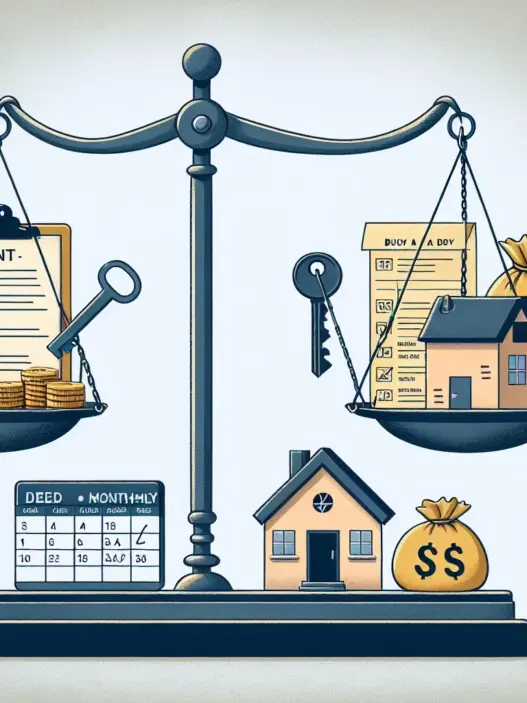Money today is worth more than the same amount in the future. This concept, known as the time value of money, is fundamental to personal finance and investing. It’s a principle that can significantly impact your financial future, especially when it comes to retirement planning.
What Is the Time Value of Money?
The time value of money is based on the idea that a dollar today can be invested to earn returns, making it more valuable than a dollar received in the future. This concept takes into account factors like inflation, investment opportunities, and the potential for earning interest.
The Power of Compound Interest
Compound interest is a key factor in the time value of money. When you invest, you earn returns not just on your initial investment, but also on the accumulated interest over time. This creates a snowball effect, where your money grows exponentially.
For example, if you invest $1,000 at a 7% annual return:
– After 10 years, you’d have about $1,967
– After 20 years, you’d have about $3,870
– After 30 years, you’d have about $7,612
This example illustrates why starting retirement planning early can make a significant difference in your financial future.
Why Investing Early Matters
Investing early gives your money more time to grow. Even small amounts invested regularly can lead to substantial wealth over time due to compound interest. Here’s why starting early is crucial:
-
More time for growth: The longer your money is invested, the more time it has to compound and grow.
-
Ability to take on more risk: Younger investors can often afford to take on more risk, potentially leading to higher returns over time.
-
Recovery from market downturns: With a longer investment horizon, you have more time to recover from market fluctuations.
-
Developing good financial habits: Starting early helps establish lifelong saving and investing habits.
The Cost of Waiting
Delaying your investments can have a significant impact on your future wealth. Let’s consider two scenarios:
- Investor A starts investing $200 monthly at age 25
- Investor B starts investing $200 monthly at age 35
Assuming a 7% annual return, by age 65:
– Investor A would have about $525,000
– Investor B would have about $244,000
This $281,000 difference clearly shows the cost of waiting just ten years to start investing.
Practical Steps to Start Investing Early
-
Start small: Even small amounts can grow significantly over time. Begin with whatever you can afford.
-
Use tax-advantaged accounts: Utilize accounts like 401(k)s and IRAs to maximize your investments. Taking full advantage of your employer’s match can significantly boost your savings.
-
Automate your investments: Set up automatic transfers to your investment accounts to ensure consistent saving.
-
Educate yourself: Learn about different investment options and strategies. Understanding personal finance is crucial for making informed investment decisions.
-
Diversify your portfolio: Spread your investments across various asset classes to manage risk.
Overcoming Challenges to Early Investing
While the benefits of early investing are clear, many people face challenges in getting started:
-
Student loan debt: Balancing loan payments with investing can be tricky. Consider strategies to lower student loan payments to free up money for investing.
-
Low income: Start with what you can afford, even if it’s just a small amount each month. Cutting expenses can help free up more money for investing.
-
Lack of knowledge: Educate yourself through reputable financial resources. Consider seeking advice from a personal finance advisor if needed.
-
Fear of market volatility: Remember that long-term investing often smooths out short-term market fluctuations.
The Role of Time Value of Money in Financial Planning
Understanding the time value of money is crucial for various aspects of financial planning:
-
Retirement planning: It helps in calculating how much you need to save now to reach your retirement goals.
-
Loan decisions: It aids in understanding the true cost of loans over time.
-
Investment choices: It helps in comparing different investment opportunities.
-
Major purchase decisions: It assists in deciding whether to buy now or save up for future purchases.
Conclusion
The time value of money underscores the importance of investing early. By starting your investment journey as soon as possible, you harness the power of compound interest and give your money more time to grow. Remember, it’s not just about how much you invest, but also about how long your money has to work for you. Take action today to secure your financial future, and consider exploring various ways to generate passive income to further boost your long-term financial health.
Frequently Asked Questions
What is the time value of money?
The time value of money is a financial concept that states money available now is worth more than the same amount in the future due to its potential earning capacity. It considers factors like inflation, investment opportunities, and the potential for earning interest.
Why is investing early so important?
Investing early is crucial because it gives your money more time to grow through compound interest. It allows you to potentially take on more risk, recover from market downturns, and develop good financial habits. Starting early can significantly impact your future wealth.
How does compound interest work?
Compound interest is when you earn returns not just on your initial investment, but also on the accumulated interest over time. This creates a snowball effect, where your money grows exponentially. For example, $1,000 invested at a 7% annual return could grow to $7,612 after 30 years.
What are some practical steps to start investing early?
To start investing early, begin with small amounts if necessary, use tax-advantaged accounts like 401(k)s and IRAs, automate your investments, educate yourself about different investment options, and diversify your portfolio to manage risk.
How can I overcome challenges to early investing?
To overcome challenges to early investing, consider strategies to lower student loan payments, start with small amounts if you have a low income, educate yourself through reputable financial resources, and remember that long-term investing often smooths out short-term market fluctuations.




















